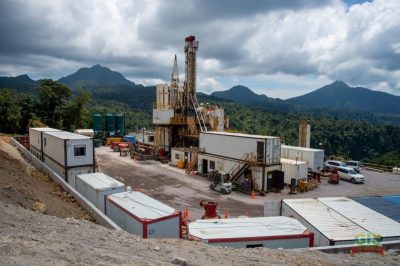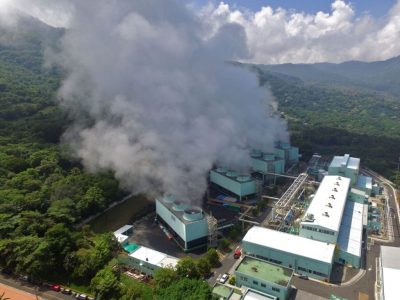Outlook dim on global warming with no global deal on emissions reductions
The outlook for global warming is dim and the head of carbon trading research at Deutsche Bank believes that as long as the U.S. won´t join a global carbon emissions reduction scheme won´t work.
In an article in The Age from Australia, the head of carbon emissions research at Deutsche Bank says he “can´t see how the world can can avoid dangerous global warming – judged as greater than two degrees Celsius – based on the targets agreed at climate change summits in Copenhagen and Cancun.
Mr Lewis said a target to restrict global warming to those two degrees is “probably unrealistic now, because of the politics; not because the technology isn’t there, not because with the right policies it’s just not possible – it’s just that there isn’t the political will”.
Without the United States signing up, there’s unlikely to be a global deal on emissions reduction negotiated at the next climate summit in Durban, South Africa. Without such a pact, there will be no successor to the Kyoto Protocol, which expires in 2012.
“Frankly the UN process has become, not totally irrelevant, but it’s not the forum where a meaningful global deal is going to be brokered that will get you on a two degrees centigrade trajectory,” Paris-based Mr Lewis said on a recent visit to Australia.
“That is not the political framework through which this (trajectory) is going to be delivered. I can’t tell you there is a ready-made alternative framework in place that will allow a global deal to be delivered because I don’t believe that either.”
So while putting a price on carbon emissions is a key incentive for renewable development, including geothermal, with no global deal it will be difficult. The article then also goes into the cutting emissions, and argues that countries – given the economic difficulties – will not deliver the emission reductions promised.
But progress will happen and come through “bottom-up” deals in “juristidcations “including Australia, California (which will have an emissions trading scheme from January 2013), South Korea, Japan (once it had recovered from this year’s natural disasters), China and Brazil take effect, Deutsche’s Mr Lewis said.”
Another point raised would be eventually rising oil, gas and coal prices. Something that at the moment looks like it won´t happen for some time. But with technological development in the renewable technologies, cost curves for the industry will go down and then maybe in some time, clean technologies “become viable on a stand-alone basiis, even without a carbon price.”
What does this mean for geothermal? Well, first of all geothermal is attractive as a base-load capacity renewable. Secondly it is – depending on geographical location – very cost competitive. So while there is a strong start up risk for geothermal development, it is already from a price perspective very attractive. It just needs to get over those first early hurdles. Carbon pricing clearly would help in getting the right partners to join. Good example is Australia, where utilities and power off-takers have taken stakes in geothermal development.
Source:: The Age (Australia)


















